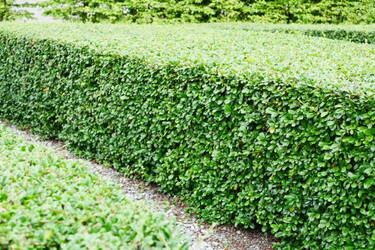Is it worth installing a plant fence? Advantages and disadvantages worth knowing

Before the warm season begins, many people are hesitant about which fence to choose for their summer cottage or home. Plant fences are a unique alternative to traditional ones. From their aesthetic appeal to potential maintenance problems, UAportal has told you about the pros and cons of plant fences.
Advantages
1. Aesthetics
One of the main advantages of a hedge made of plants is the aesthetic appeal it adds to the area. Green leaves and bright flowers create a beautiful and natural fence, improving the overall atmosphere of the site.
2. Naturalness
Unlike traditional fences made of wood or metal, a vegetated fence offers a more natural and relaxing environment. Vegetation acts as a buffer, filtering noise and protecting the area from prying eyes.
Disadvantages
1. Maintenance
One of the main disadvantages of a hedge made of plants is the time and effort required to maintain it. Unlike conventional fences, plants need regular pruning, watering, and fertilizing. For some people, this can be a time-consuming and tedious task.
2. The threat of diseases and pests
Another disadvantage of a plant fence is the potential for diseases and pests. Without proper care and monitoring, plants can become susceptible to fungal infections, insect infestations, and other problems that can affect their growth and overall health.
3. Lower level of security
In addition, a vegetative fence may not provide the same level of security as a traditional fence. While it may act as a physical barrier, it may not be as effective at deterring intruders. Vegetative fences are usually less durable and easier to bypass or damage.
If you want to get the latest news about the war and events in Ukraine, subscribe to our Telegram channel!
